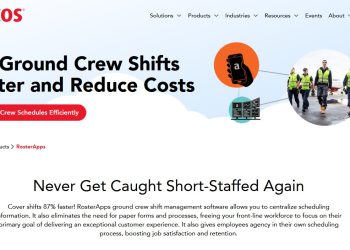When it comes to opening a business, location is everything. So, if you decide the city is right for you, you need to know what’s involved. No matter the location, however, there are plenty of trials and tribulations you have to go through in order to ensure success. Here’s how to open a successful online business in the city.
Identify Your Niche
All businesses start off with two things: a niche and a name. Before you can come up with a name, you must first decide on what your business will focus on. Every business is unique even if there are many that are a part of the same niche, so if you want your business to see success, take your time in choosing. Since you’re a new business owner, you might find yourself needing some help in choosing. To get you on the right track, here’s small list of niches you can consider focusing your business on:
- Pets
- Fitness
- Travel
- Cooking
- Furniture
- Books
Deciding on a niche can take time, but it’s one of the most important steps in the whole process. It’s okay to take as long as you need to decide. After all, you need to have for what you’re doing. Once you’ve finally settled on your niche, you’ll be able to unleash your creativity when deciding upon a name. Make sure to choose one that’s appealing while alluding to the niche you represent.
Have a Solid Education
Knowledge is power, especially when it comes to opening a business in a bustling city. It’s important that you have a proper education before diving head-first into the world of business. While you can have an associate’s, it’s in your best interest to have at least a BA. A bachelor’s degree has an average cost of $32,000. If you want to pursue your master’s and have the highest level of education, you can expect to pay at least $65,000 to as much as over $90,000. These prices may seem intimidating, but there are viable solutions out there. The most efficient way to pay for your degree is to get a student loan from a private lender. Private lenders are ideal to go to, especially for higher levels of education, because they usually don’t charge exuberant interest rates.
Determine Your Business Structure
Your next course of action will be to choose a suitable business structure. A business structure is what determines how your business operates, how you pay the taxes and what you’re liable for. In fact, you have to choose a structure before you can even register your business within the state you’re operating in. There are four main types of business structures to choose from:
- Limited Liability Company (LLC)
- Sole Proprietorship
- Corporation
- Partnership
Corporations are broken up into sub-categories such as an S-Corp and C-Corp. A sole proprietorship is when the business is completely in your control. As a result, you are responsible for literally everything such as liability and tax payments. A partnership is when more than one person, which is usually two or more, are in charge of the business. An LLC takes the best aspects of a corporation and a partnership and combines them into one, which makes it the perfect choice for beginners.
Obtain the Necessary Licenses
Depending on your type of online business, you have to get the right licensing and, in some cases, permits. The type of licensing you need depends on the type of business you’re running. For example, if you’re running a shop that’s dedicated to selling alcoholic beverages, you’ll need to acquire the appropriate licensing from the Alcohol and Tobacco Tax and Trading Bureau or Local Alcohol Beverage Control Board. Another example would be if your business had anything to do with broadcasting information through television or a radio. In this instance, you’d have to go to the Federal Communications Commissions. Also, depending on the state, you may have to acquire a state license as well.
Get Your Finances in Order
Businesses need to proper financing, even before they open for business. The cost of a business varies in many aspects, but larger businesses usually require more than smaller ones. If you have trouble procuring funding, you can always take out a personal or business loan to help get your business up and running. You can also apply with the Small Business Administration or look for angel investors.






